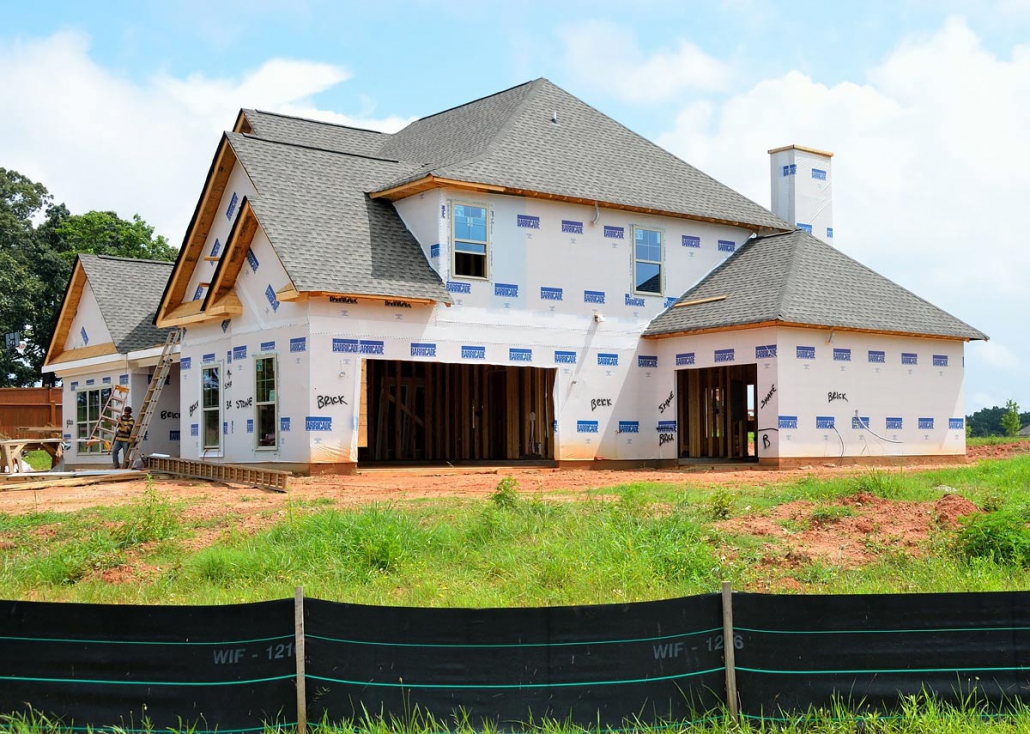Our Mortgage Glossary of Common Terms and definitions listed from A to Z.
Adjustable Rate Mortgage (ARM)
A mortgage in which the interest rate is adjusted periodically based on an index. Also called a variable rate mortgage.
Adjustment Interval
For an adjustable rate mortgage, the time between changes in the interest rate charged. The most common adjustment intervals are one, three or five years.
Amortization
Literally to “kill off” (root: mort) the outstanding balance of a loan by making equal payments on a regular schedule (usually monthly). The payments are structured so that the borrower pays both interest and principal with each equal payment.
Annual Percentage Rate (APR)
The interest rate which reflects the cost of a mortgage as a yearly rate. This rate is usually higher than the stated loan rate for the mortgage, because it takes into account points and other charges.
Application Fee
The fee charged by the lender to the borrower for applying for a loan. Payment of this fee does not guarantee that a loan will be approved. Some lenders may apply the cost of the application fee to certain closing costs.
Appraisal
The determination of property value based on recent sales information of similar properties.
Assumable Loan
These loans may be passed on from a seller of a home to the buyer. The buyer “assumes” all outstanding payments.
Balloon Mortgage
Behaves like a fixed-rate mortgage for a set number of years (usually five or seven) and then must be paid off in full in a single “balloon” payment. Balloon loans are popular with those expecting to sell or refinance their property within a definite period of time.
Broker
An individual in the business of assisting in arranging funding or negotiating contracts for a client but who does not loan the money himself. Brokers usually charge a fee or receive a commission for their services.
Caps
A set percentage amount by which an adjustable rate mortgage may adjust each adjustment period. For adjustable loans, caps are usually quoted as two numbers as in 2/6. The first number indicates how much a loan may adjust at each adjustment period while the second number indicates how much a loan may adjust over its lifetime.
Loans like the 3/1 and 5/1 adjustable which have an initial fixed period are quoted with 3 numbers as in 2/6/3 which would mean that the first adjustment may be as much as 3%, subsequent adjustments are capped at 2% each, and the lifetime cap is 6%.
Two-Step loans are quoted with a single cap, which is the amount by which the loan may adjust at its single adjustment date.
Closing Costs
Fees paid by the borrower when property is purchased or refinanced. These typically include a loan origination fee, discount points, appraisal fee, title search, title insurance, survey, taxes, deed recording fee, and credit report charges.
Commitment
A written letter of agreement detailing the terms and conditions by which the lender will lend and the borrower will borrow funds to finance a home.
Construction Loan
A short term loan for funding the cost of construction. The lender advances funds to the builder as the work progresses.
Conventional Loan
A mortgage neither insured by the FHA nor guaranteed by the VA.
Conversion
The right of a borrower to convert an adjustable or balloon loan into a fixed loan. The Conversion Option column on Microsurf balloon tables indicates the right of a borrower to convert this balloon loan.
Credit Rating
Borrowers are rated by lenders according to the borrower’s credit-worthiness or risk profile. Credit ratings are expressed as letter grades such as A-, B, or C+. These ratings are based on various factors such as a borrower’s payment history, foreclosures, bankruptcies and charge-offs. There is no exact science to rating a borrower’s credit, and different lenders may assign different grades to the same borrower.
Credit Report
A report to a prospective lender on the credit standing of a prospective borrower. Used to help determine creditworthiness. Information regarding late payments, defaults, or bankruptcies will appear here.
Deed
A legal document which affects the transfer of ownership of real estate from the seller to the buyer.
Default
The failure to make payments on a loan.
Down Payment
Money paid by a buyer from his own funds, as opposed to that portion of the purchase price which is financed.
Equity
The difference between the current market value of a property and the principal balance of all outstanding loans.
Finance Charge
The total dollar amount your loan will cost you. It includes all interest payments for the life of the loan, any interest paid at closing, your origination fee and any other charges paid to the lender and/or broker. Appraisal, credit report and title search fees are not included in the finance charge calculation.
Fixed-Rate Mortgage
A mortgage where the interest rate does not change for the life of the loan.
Float
Between the time of application and closing, a borrower may choose to bet on interest rates decreasing by electing to float. Floating is essentially choosing not to lock the interest rate. Since it is the borrower’s responsibility to lock his or her rate before (or at) closing, choosing to float is considered risky and may result in a higher interest rate. Request information from your lender regarding lock procedures.
Foreclosure
A legal procedure in which real estate is sold by the lender to pay a defaulting borrower’s debt .
Good Faith Estimate
An estimate of charges which a borrower is likely to incur in connection with a loan closing.
Gross Monthly Income
The total amount the borrower earns per month, not counting any taxes or expenses. Often used in calculations to determine whether a borrower qualifies for a particular loan.
Hazard Insurance
A form of insurance in which the insurance company protects the insured from certain losses such as: fire, vandalism, storms and certain other natural causes.
Housing Ratio
The ratio of the monthly housing payment to total gross monthly income. Also called Payment-to-Income Ratio or Front-End Ratio.
Index
A published interest rate not controlled by the lender to which the interest rate on an Adjustable Rate Mortgage (ARM) is tied. The index and the interest rate linked to it may increase or decrease.
Interest Rate
The percentage of an amount of money which is paid for its use for a specified time.
Jumbo Loan
A loan above $322,700. These limits are set by the Federal National Mortgage Association and the Federal Home Loan Mortgage Corporation. Because jumbo loans cannot be funded by these two agencies, they usually carry a higher interest rate.
Lender
The bank, mortgage company, or mortgage broker offering the loan. Many institutions only “originate” loans and then resell the obligation to third parties.
Life of Loan Cap
The maximum interest rate that can be charged during the life of the loan. Also called Lifetime Cap. This value is often expressed as an increment above the initial loan rate. For example, an adjustable rate loan with an initial rate of 7.25% and a 6% lifetime cap will never adjust above a rate of 13.25% (7.25+6.0).
Loan-To-Value Ratio
The relationship between the amount of the mortgage loan and the appraised value of the property expressed as a percentage. A LTV ratio of 90 means that a borrower is borrowing 90% of the value of the property and paying 10% as a down payment. For purchases, the value of the property is assumed to be the purchase price, for refinances the value is determined by an assessment.
Lock noun
The period, expressed in days, during which a lender will guarantee a rate. Some lenders will lock rates at the time of application while others will allow the borrower to lock the rate after the application is taken. Request information from your lender regarding lock procedures.
Lock verb
The act of committing to a mortgage rate. This action, taken by a borrower some time between the application and the closing dates, is sometimes accompanied by a payment by the borrower to the lender. Opposite of float
Margin
The amount a lender adds to the quoted index rate for an adjustable rate loan to determine the new interest rate.
Minimum Credit
This field on the Microsurf tables refers to the minimum credit rating a borrower must have in order to qualify for the listed loan.
Monthly Housing Expense
Total principal, interest, taxes, and insurance paid by the borrower on a monthly basis. Used with gross income to determine affordability.
Mortgagee
The lender.
Mortgagor
The borrower.
Net Effective Income
Gross income less federal income tax.
Origination Fee
The fee imposed by a lender to cover certain processing expenses in connection with making a loan. Usually 1% of the amount loaned. Please refer to the Points definition.
Points
Prepaid interest paid by the borrower to the lender at closing. A point is equal to 1 percent of the loan amount (e.g. 1.5 points on a $100,000 mortgage would cost the borrower $1,500). Generally, by paying more points at closing, the borrower reduces the interest rate of his loan and thus future monthly payments.
Prepaids
Expenses such as taxes, insurance and assessments which are paid in advance of their due date and which must be paid by the buyer on a prorated basis at closing.
Prepayment
The ability to pay off the remaining balance of a loan.
Prepayment Penalty
Lenders who impose prepayment penalties will charge borrowers a fee if they wish to repay part or all of their loan in advance of the regular schedule.
Principal
The amount of debt, not counting interest, left on a loan.
Private Mortgage Insurance (PMI)
Paid by a borrower to protect the lender in case of default. PMI is typically charged to the borrower when the Loan-to-Value Ratio is greater than 80%.
Qualifying Ratio
The ratio of the borrower’s fixed monthly expenses to his gross monthly income. Ratios are expressed as two numbers like 28/36 where 28 would be the Front-End Ratio and 36 would be the Back-End Ratio.
The Front-End Ratio is the percentage of a borrower’s gross monthly income (before income taxes) that would cover the cost of PITI (Mortgage Principal Payment + Mortgage Interest Payment + Property Taxes + Homeowners Insurance). In the case of a 28% Front-End Ratio a borrower could qualify if the proposed monthly PITI payments were 28% or less than the borrower’s gross monthly income.
The Back-End Ratio is the percentage of a borrower’s gross monthly income that would cover the cost of PITI plus any other monthly debt payments like car or personal loans and credit card debt.
Please note that qualifying ratios are only a rough guideline in determining a potential borrower’s credit-worthiness. Many factors such as excellent or poor credit history, amount of down payment, and size of loan will influence the decision to approve or disapprove a particular loan.
Settlement Costs
See Closing Costs.
Tax Lien
A claim against real estate for the amount of its unpaid taxes.
Title
A document that gives evidence of an individual’s ownership of property.
Title Insurance
Insurance against loss resulting from defects of title to a specifically described parcel of real estate.
Title Search
An examination of city, town, or county records to determine the legal ownership of real estate.
Total Debt Ratio
Monthly debt and housing payments divided by gross monthly income. Also known as Back-End Ratio.
Variable Rate Mortgage
See Adjustable Rate Mortgage.
 We offer Colorado Conventional Construction Loans and mortgage lending for new construction, renovation and Pre-built homes.
We offer Colorado Conventional Construction Loans and mortgage lending for new construction, renovation and Pre-built homes.
We earn your trust by taking the stress out of the buying/building process with our vast experience we can intelligently discuss with you the client the various options available and advise our client in the direction they should follow.
Taylor Mortgage Group is a mortgage broker that offers a variety of loan products and rates with some of the largest and best investors. A pre-approval process can be helpful in structuring your final goal. One of the most important steps in purchasing a home is to be pre-qualified or pre-approved. An accurate credit report is a useful tool in assessing your lending options. We are there to advise and assist with any challenges. Verifying correct and up to date credit information helps us provide clients an option for debt consolidation in order to help them qualify for the price range they are interested in for their loan.
Call or email Janie today with your home, land, construction, and HECM lending questions.


 We offer Colorado Conventional Construction Loans and mortgage lending for new construction, renovation and Pre-built homes.
We offer Colorado Conventional Construction Loans and mortgage lending for new construction, renovation and Pre-built homes.




































